
The world should wake up when China finally says no to being the global refuse dump
I have talked often in the past about China’s “deflationary gift” to the world economy over the past three decades. But there is a second, huge and undiscussed “gift” – China’s “environmental gift”, or more specifically China’s “waste disposal gift”.
There has been wide recognition of China’s remarkable rapid economic emergence since 1980, which has radically altered the balance of the global economy – a balance over the past two centuries that involved a necessarily poor majority of the world’s population producing and selling foods and raw materials cheaply to about 500 million people in Europe and North America.
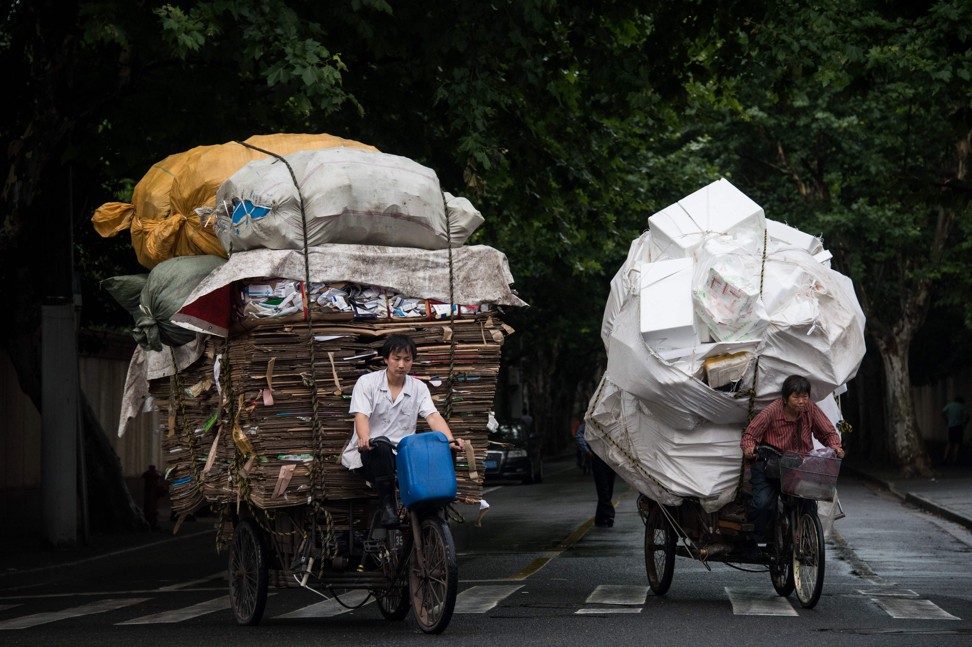
Of course, from 2001 when Beijing began to lift minimum wages to give Chinese workers more spending power and to create China’s own middle class consumer economy, this era of China’s “deflationary gift” began to unravel.
Few have yet begun to estimate the impact of the reversal, as Western retailers have found it increasingly difficult to keep consumer prices down.
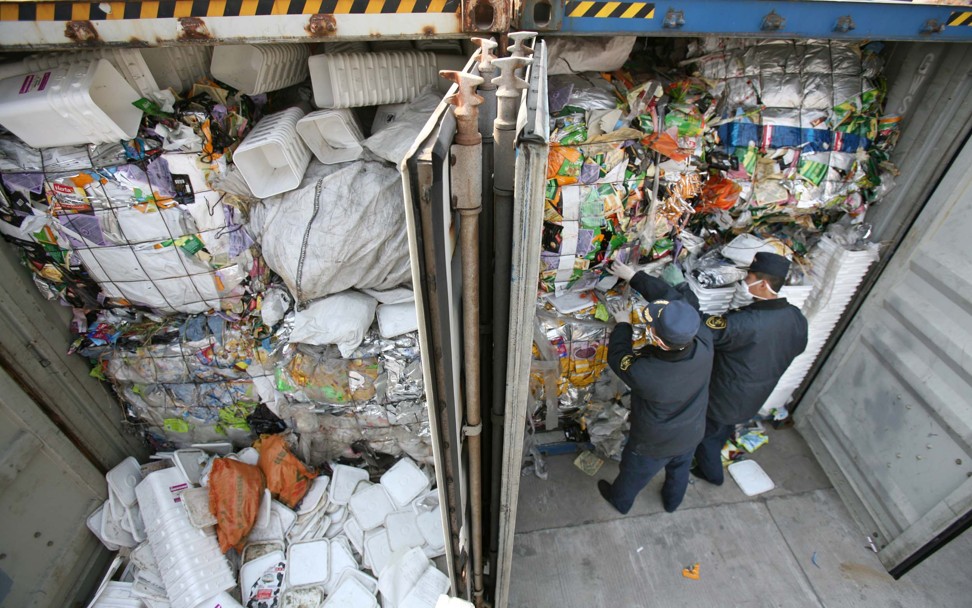
There can be no doubt that these factors have contributed mightily to what Pankaj Mishra calls The Age of Anger – the ugly and increasingly xenophobic populist sentiments that are tainting democratic politics across the affluent West.
But Beijing has just reminded us of a second “gift”, invisibly provided to the consuming West over recent decades, which it now seems determined to withdraw: I call it China’s “environmental gift”.
It was on July 18 that China wrote to the World Trade Organisation to say that by the end of this year, it would no longer import a wide range of waste – including plastics, waste paper and waste textile materials and other forms of solid waste.
The decision comes right from the top, and is part of an increasingly anxious range of measures aimed at preventing China from disappearing under mountains of its own – and imported – waste.
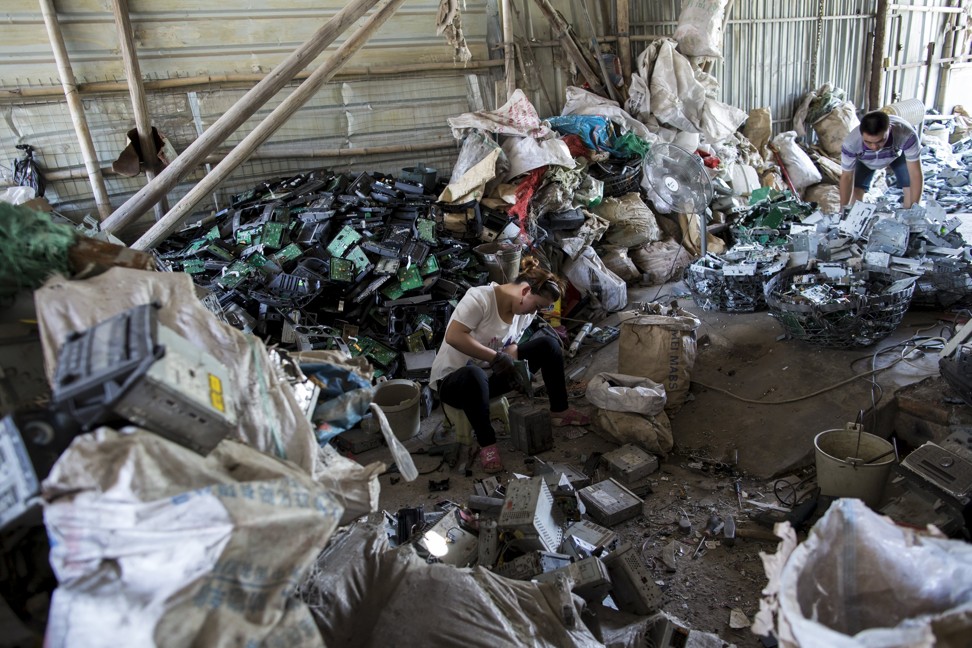
Every year since the late 1990s, China has imported increasing volumes of the West’s waste, enabling our hyper-consumers in the US and Europe to export the environmental consequences of their excess. The numbers for this invisible industry have become huge. Between 1995 and 2016, China’s imports of garbage have jumped from 4.5 million tonnes to over 45 million tonnes.
At the same time, China has in its own right become the world’s leading producer of trash. The World Bank says it produced 254 million tonnes of refuse in 2015 – one third of what the world throws away – and that if unchecked this will rise by 2030 to 533 million tonnes.
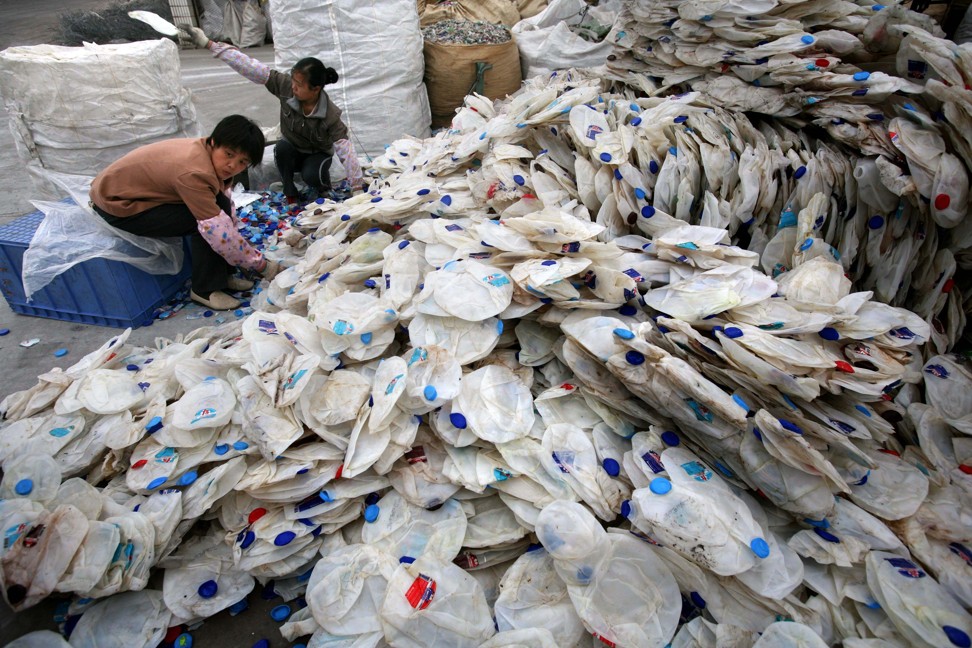
For waste paper, China accounts for 52 per cent of world exports, most of it from the US or Europe. The business has made many people very rich. Zhang Yin, known inside China as the country’s “waste queen” is said to be one of China’s richest entrepreneurs.
Her company Nine Dragons Paper Holdings is valued at HK$57.12 billion (US$7.3 billion). According to the Economist magazine, California-based Chung Nam last year exported 333,900 containers of waste – most of them to China – and making waste paper America’s biggest export by volume.
The story is similar for the immensely more damaging trade in plastic waste. China in 2016 imported about 7.3 million tonnes of waste plastic, costing US$3.7 billion, and accounting for around 56 per cent of world imports.
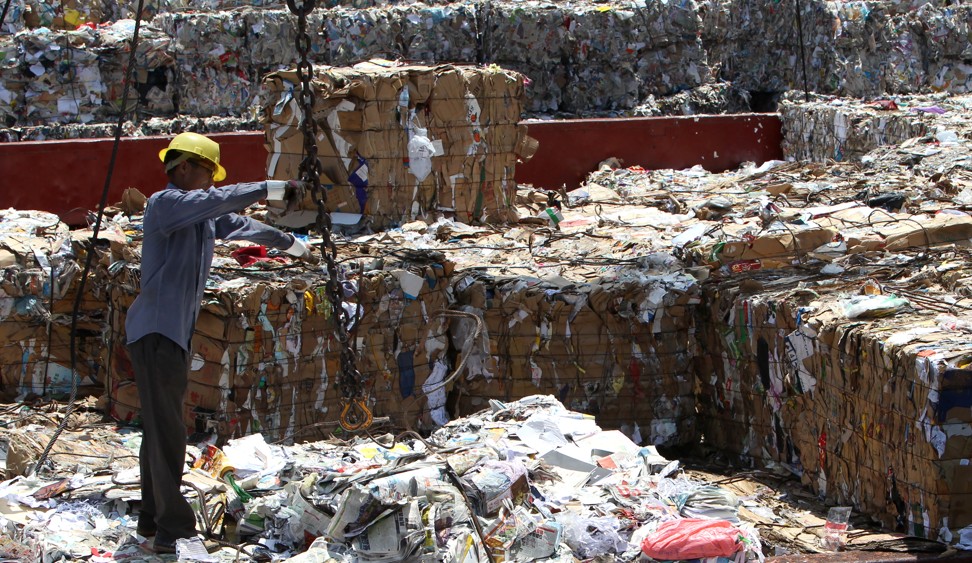
Towns like Guiyu in Guangdong have become notorious, “boasting” 100,000 scavengers eking a living out of sorting electronic wastes in appalling environments.
Of all this trade, none seems more dangerous and unsustainable than the trade in plastics, simply because of the formidable challenges being created by such huge production of materials that are going to take 400 years or more to degrade.
From 2 million tonnes created in 1950, the world is expected to produce 8.3 billion tonnes this year – with just 9 per cent recycled, 12 per cent incinerated and 79 per cent dumped into landfills.

Without China to export to, few governments are in any way prepared to cope with our waste sustainably at home.
China’s July 18 letter to the WTO may change all that – and not least in Hong Kong, where our waste management challenge is running rapidly out of control. Not only are our three remaining landfills all close to bursting, but local efforts to control our production of waste are woefully inadequate.
It seems China’s terse July 18 letter to the WTO, in terminating its “waste disposal gift” to the globe, is set to concentrate minds worldwide on environmental problems that for decades we have been able to kick down the road.
I suspect most economies – including our own – are set to become a great deal messier before appropriate (and radical) measures are taken.
David Dodwell researches and writes about global, regional and Hong Kong challenges from a Hong Kong point of view

